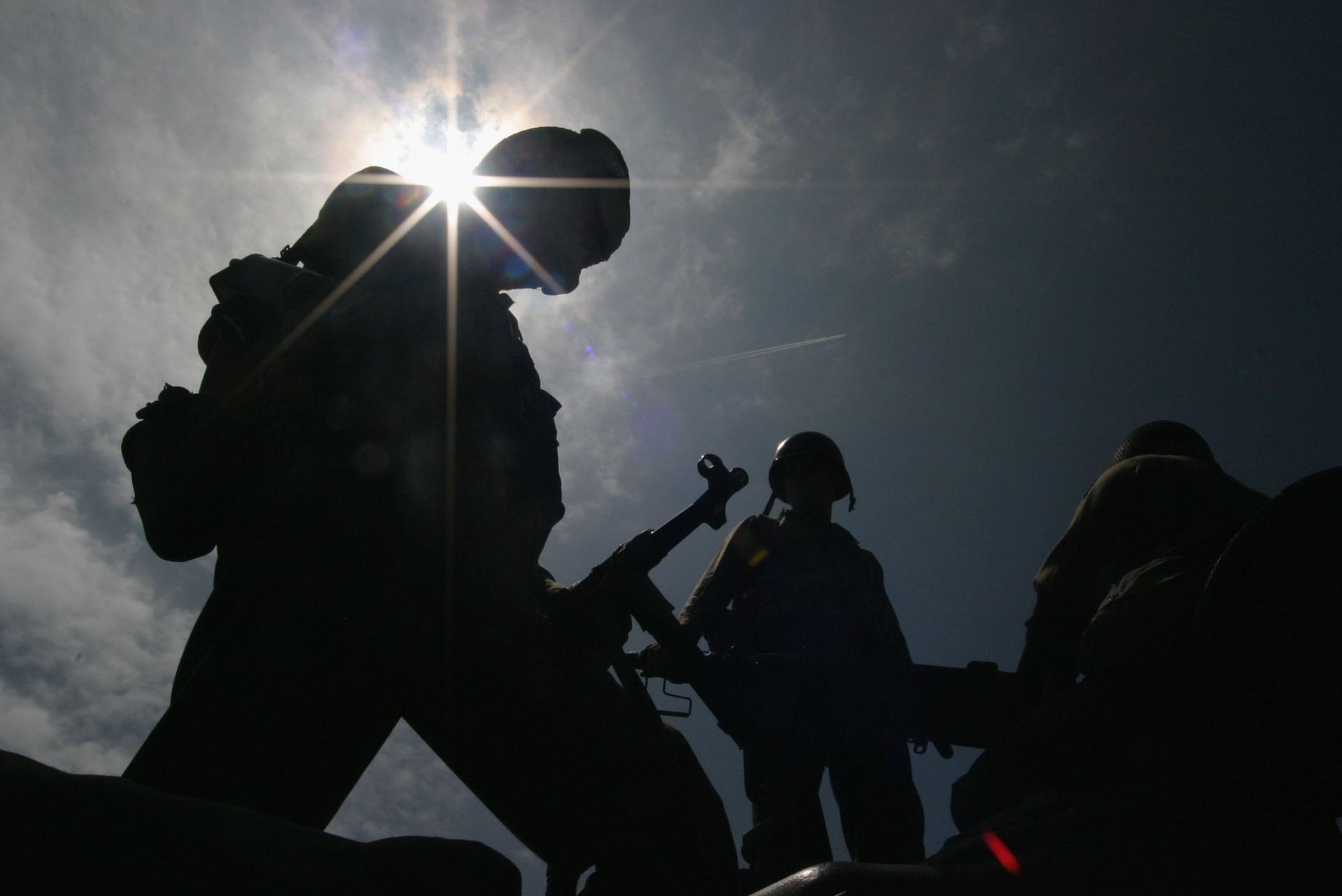D-Day: 5 facts to know
ARROMANCHES, FRANCE – JUNE 5: Military enthusiasts in World War II-era American military gear stand silhouetted against the sun June 5, 2004 at Arromanches, France. Leaders of the former Allied powers and Germany and thousands of veterans will commemorate the D-Day invasion on June 6. (Photo Warrick Page/Getty Images)
"You are about to embark upon the great crusade toward which we have striven these many months. The eyes of the world are upon you," General Eisenhower said to the troops before heading off to Normandy beach for what is known as the D-Day invasion. "I have full confidence in your courage, devotion to duty and skill in battle."
June 6, 1944, marked the first day of the The Normandy landings, code named Operation Neptune, where the Allies invaded Normandy Beach, in Operation Overlord, during World War II. While this day will forever be marked in history, there are a few facts that go unnoticed.
1. The D in D-Day has no special meaning. According to PBS, The US Army began using the codes "H-hour" and "D-day" during World War I to indicate the time or date of an operation's start. Planners would write of events planned to occur on "H-hour" or "D-day" before the date and time was decided to keep the plans a secret, thus the D simply stands for the day of the invasion.
2. Those with knowledge of D-Day were code named BIGOT. In September 1943, it was decided that all personnel granted access to top secret documents should be given an ID card stamped with a single word, BIGOT, according to BBC. Officers assumed no one would want to brag about being classified a bigot.
3. D-Day by the numbers. The Allied forces sent a 5000-vessel armada that transported over 150,000 troops and nearly 30,000 vehicles across the English Channel to the French beaches. The forces also included six parachute regiments with over 13,000 paratroopers flown in over 800 planes.
4. D-Day was meant for June 5. Eisenhower initially selected June 5, 1944, as the date for the invasion; however, bad weather caused it to be delayed for 24 hours, according to the History Channel. After his meteorologist predicted improved conditions for the following day, he gave the go-ahead.
5. A double-agent may have led the allies to victory. Juan Pujol, born in Barcelona, Spain, reportedly started his military career by fighting in the Spanish Civil War. He claimed he fought for both sides, without ever firing a single bullet. According to the MI5 website, Pujol emerged from that experience with a dislike for totalitarianism and Nazism. WWII convinced him that he should make a contribution, as he put in his 1985 autobiography, "to the good of humanity."
Garbo worked for the British forces by providing the Germans with misinformation on troop force and movement in the run-up to D-Day. According to the BBC, it was later discovered that Pujol had encouraged the Germans to over-estimate the number of Allied divisions by 50 percent.
More from GlobalPost: Libya apologizes after WWII graves vandalized (VIDEO)
